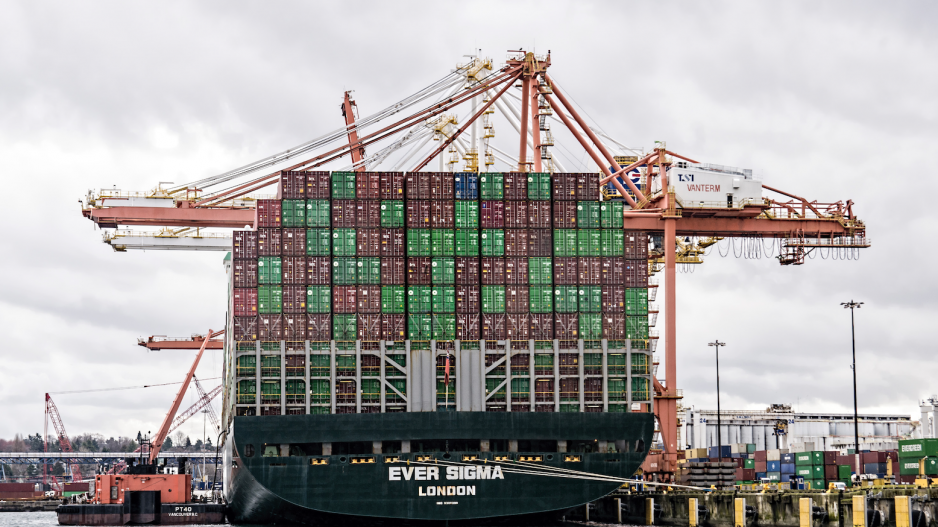Strike action that resumed at British Columbia's ports on Tuesday has been declared unlawful after the union failed to provide the required 72-hour notice.
Federal Labour Minister Seamus O'Regan shared a decision by the Canada Industrial Relations Board on Twitter on Wednesday after it ruled members of the International Longshore and Warehouse Union Canada must cease and desist from any strike action until the notice requirement is met.
"This strike is illegal," O'Regan said.
The strike had previously shut down British Columbia's ports from July 1 to 13, before a tentative deal drafted by a federal mediator resulted in work resuming. But workers returned to picket lines on Tuesday afternoon after the union caucus ultimately rejected the four-year mediated deal.
The union said the term of the agreement was "far too long" and "employers have not addressed the cost of living issues" faced by workers in the last few years.
O'Regan and federal Transport Minister Omar Alghabra issued a statement late Tuesday saying workers and employers across Canada cannot face further disruption and that they were looking at all options.
The ministers said they have been patient and respected the collective bargaining process, but they need the ports operating.
"The deal presented to the parties was the result of a constructive and substantive collective bargaining process," the ministers said in their statement.
"It represented a fair and balanced deal. It was informed by weeks of collective bargaining and drafted by third-party mediators in the interest of both the union and the employer."
The labour board's ruling says the union's position was that it didn't need to provide notice for this latest action since there was an ongoing strike.
The ruling says the BC Maritime Employers Association asked for the move to be declared unlawful.
The strike involves about 7,400 port workers at more than 30 port terminals and other sites across the province.
The original strike froze billions of dollars worth of cargo from moving in and out of harbours, including at Canada's busiest port in Vancouver.
The employers said the union rejected the tentative deal without sending it to a full membership vote.
Conservative Leader Pierre Poilievre said Prime Minister Justin Trudeau must end the strike immediately because of the massive cost to workers, consumers and businesses.
"We're calling on him to deliver a plan to end this strike within the next 24 hours," Poilievre said.
Meanwhile, NDP transport critic Taylor Bachrach said it’s a part of union bargaining rights to be able to reject an agreement.
"We know that their team is ready to get back to the table right away and we encourage other parties to do the same," Bachrach said.
"We are also renewing our call for the federal government to support the collective bargaining process, rather than resorting to the sort of back-to-work legislation that Liberal and Conservative governments have imposed far too often."
The decision by the union to resume the strike was met by calls for Ottawa to pass back-to-work legislation from the Canadian Chamber of Commerce and the Canadian Federation of Independent Business.
"The 13-day strike had already done significant damage to small businesses across the country and Canada’s international reputation as a dependable trading partner," federation executive vice-president Corinne Pohlmann said in a statement.
"To let it carry on any further is negligent and will amplify disruptions of the supply chain."
Robin Guy, vice-president and deputy leader, government relations, at the Canadian Chamber of Commerce, said further delay will cause the Canadian economy more harm.
"We’re calling on the government and all parties to agree to reconvene parliament and pass back to work legislation immediately," Guy said.
This report by The Canadian Press was first published July 19, 2023.
The Canadian Press




